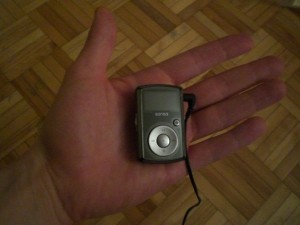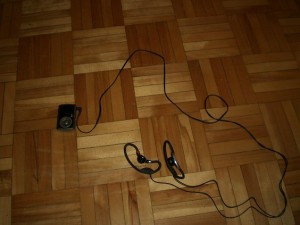Our identity exists at the core of everything that we do in life. Our sense of self, as hard as it is to discuss in language and science, is fundamental to everything we experience.
How is it possible then, to forget who we are? You might be thinking about the various forms of amnesia present in studies of psychology and sensationalized in our fiction. Anyone with personal experience with the loss of a friend or family member to any form of amnesia or dementia understands how deeply painful it can be.
Here I am talking about the everyday experience of forgetting who we are. I am talking about the sense of losing touch with our innermost desires and dreams. I am talking about how the external demands of the world can drag us further and further from a state in which our wishes and hopes for our lives are being realized by our actions.
Who are we?
If you ask someone who they are, they might tell you their name and what they do for a living. Pressed further, they might tell you about their family situation and hobbies.
Who are we really?
This question has nagged me for years. It was in the writings about humanistic psychology that I found the answer that has satisfied me the most (so far). The self is not a thing to be identified and scrutinized. The self is an evolving experience.
So you and I, or at least our sense of our selves, is a set of continually transforming experiences. We experience our innermost self – and the outside world – simultaneously. For most experiences, these two worlds are inseparable.
How can you forget an evolving experience?
You might ask, “Well, if I accept your claim that my ‘self’ is an experience, how is it possible for me to forget who I am?
You are happening every day. Every time you make a choice or think a thought, you are happening. Every time you feel happiness, pain, or sadness, you are happening. Every one of these experiences resonates with your being to greater or lesser extent.
We all have activities that we prefer over others. Broadly speaking, each of us will have a set of experiences that we identify as pleasurable, and a (mostly distinct) set that are painful. We generally organize our lives around the idea of maximizing our well-being in whatever manner seems right to us.
Our dreams and aspirations are often deeply connected with those things that we like to do or states of being that we would like to enjoy.
We forget who we are by forgetting to experience those things that resonate deeply with us.
Acting towards our dreams
Our choices shape our experiences. With every experience, we are becoming something new. Some experiences are deeply connected with our dreams and aspirations while others are not. If our actions are aligned towards the achievement of one of our dreams, then our experiences will be filled with some of the pleasure that pursuing our dream gives us. This experience reinforces our choice if it is pleasurable, but can cast doubt on our path if it is painful.
A painful process can cause us to give up on a dream – for good reason! If our best assessment of the situation is that the pleasure we might attain in the future is not worth the pain we feel and foresee, it is a very sane choice to allocate our efforts elsewhere.
This can be particularly painful if we are chasing a prerequisite to a dream. Perhaps we think we need a degree in order to work in a field that we love. Perhaps we feel that we need to save up a lot of money so that we can be safe. Perhaps we don’t want to go hiking before we get in better shape. The list of prerequisites can sometimes seem endless.
Attaining prerequisites can be painful, as many of us know from our own experience. This pain often brings with it feelings about the meaninglessness of our pursuit. It may be that we don’t actually want the degree or the knowledge, we just want the job. Perhaps we don’t actually want money, we just want to feel safe. The pain involved in attaining our prerequisites can be enough to cause us to give up on the dream itself.
Again this can be a completely sane choice to make. What we have to guard against is the feeling of disconnection from our dream that we experience because we are preoccupied with the present moment. The process of attaining a prerequisite might feel very different than the experience of the dream itself. Being a student during your achievement of a degree often feels very different from the experience of working in the field you have chosen.
If we aren’t experiencing a facet of our dream, we are slowly losing connection with it. Dreams can be tenacious, holding on for years or decades without substantial attention. I believe however that it is in our personal best interest to keep our deepest dreams alive and happy with experiences oriented towards them.
If you are getting a degree, remember to save some time for reading about, or volunteering in, your field of preference. Find media that inspires you, and create a stash of it that you can use to bring back the feelings that galvanize your passions. Stay in touch with the dream so that you can remember who you are.
Forgetting
When our experiences are consistently not oriented towards the attainment of our dreams, we begin to forget what that taste of our dream feels like. We begin to forget what it feels like to be in the process of becoming who we want to be.
How does this happen?
These answers will not be surprising. Tales of the soul-deadening 9-5 job are rampant. University professors continue to express the sentiment that more and more students are simply doing the minimum they can to get by and finish their degree. Almost everyone knows a person who is so caught up in the concept of money that they cannot enjoy what they have – or would have – if they would loosen their death grip on their life a bit and learn to spread their wings.
Rigid, or unyielding, demands on our time can slowly erode our ability to be ourselves (as we knew ourselves to be). We forget a lot of who we were if we consistently do things that are not congruent with the dreams and passions that we held.
Realizing that you have forgotten
Have you ever had a very intensive section of your life – perhaps final exams, deadlines at work, or a crisis among family or friends – after which you found that you did not know what you wanted to do with your time?
Have you ever worked a very hard day, or week, and returned home to unwind, only to find yourself unable to muster the energy to do anything but watch TV or movies?
Individual occurrences are not indicative of a problem. If you are truly burnt out and want to just zone out, who is to argue with you? In these cases we tend to placate ourselves with those things that take very little energy. This in part explains the enormous appeal of all forms of passive entertainment we have access to in the modern era.
The problem is that habits quickly form to fill the gaps in your time. Many of us work jobs that we aren’t particularly passionate about. We then have to use our limited free time to pursue those things that make us genuinely happy. Instead of watching TV you might really actually want to be writing a play, painting a canvas, studying physics, or doing yoga.
If you want to spend your time in ways that you believe serve your long-term happiness more, then pay attention to those little twinges that you feel deep down. Grab hold of the twinges and genuinely examine them. Do you really want to practice your dance steps? Yes? Well, fire up some music and get to it. Do you really want to read more? Yes? Grab that book that you are two thirds of the way through and make a sprint for the ending.
I have often felt guilty when I feel those twinges, but guilt is not something we need to hold on to. Learn what you can from your past, and let go of the guilt. If you are genuinely trying to pursue the things that you care the most about, I can guarantee that you will be able to minimize the intrinsic guilt you feel about your actions or inactions.
One of the best pieces of advice I have heard regarding guilt of this sort is: think of it as a success. If you are feeling guilty, it means that you have successfully remembered that you wanted to do something differently. Try to use this as an encouraging thought. Next time you will be able to remember earlier, and perhaps feel more strongly that you want to make a different choice.
I have forgotten
What is the problem with forgetting? Can’t we just dig through our memories and remember what we were passionate about before?
To some extent this is true. You will likely be able to remember what you were passionate about in the past. You may even be able to recollect a bit of what it felt like. However, it is most likely that these remembered passions will feel hollow compared to what you feel they should feel like.
Why? Because you have fallen out of practice in experiencing your passions. Our experience tends to be very emotional and transformative, while our recollections of the past tend to be inexact and fleeting. It can be very difficult to recapture a passion that you have ignored for some length of time.
Passion is hard to muster on demand. If you have been slaving away at other aspects of your life for a long time, your previous passions can feel dessicated and empty. Be patient. Give yourself some time to take it easy and explore what you are feeling. If you enjoy yoga or any form of meditation, those can be a great tool for letting your experience of yourself come into sharp focus. If you remember what you liked before, try to tiptoe back into those activities. Patience is key because unreasonably high expectations tend to directly lead to negative self-evaluations that damage one’s self-esteem and cast doubt on what might be a deeply-held passion. So your first golf tee shot flies off into the shrubbery? That’s life, and you know it. Try to hold off negative self-evaluations as you explore, or re-explore, your experience.
Stay in touch or reconnect
I believe that in order to truly live the life we want to, we need to actively follow at least some of our passions. The best case is that in which we can stay in touch with them throughout our lives. In this case we are in no serious danger of forgetting what it feels like to pursue our dreams.
However, life happens. Whether we like it or not, many of us have had the experience of losing touch with those activities that we used to love, and the dreams that we used to chase. If we don’t make efforts to stay in touch with our passions and remain open to new ones, we may end up living a life that we honestly think is pretty empty and unsatisfying.
If you are headed down this path, I implore you: Take some of your time and put it towards rediscovering yourself. You may find oceans of buried passions that can help you fill your life with meaning. You may find that you have grown and changed. The ideas that once inspired you may have faded, and unexpected thoughts may have replaced them. You may have lived half your life since you last really gazed within, so it may not be surprising to find that you have grown into someone new. You will, however, still be the authority on who you were, and who you are. Your choices dictate much of how you will grow from this moment forward.
You might like to create a list for yourself. What are some concrete activities that you can do this week that will reignite your passion? Post that list right on your TV screen or computer so that next time you sit down for some passive entertainment you are reminded of your other options – options that will be more invigorating and remind you of who you are, and perhaps help you glimpse who you want to be.
Now
Experience yourself as you are. The past is useful for understanding, but experience always exists in the present moment. All of us experience at least mild amnesia. No one’s memory is completely perfect. To some extent, our past is hazy to us all. While the future tends to be even more inscrutable than the past, it is the future over which we have some control.
Knowing ourselves can only take place in the present. So what are you doing right now?
 I propose that each of us spends some amount of time this week (I suggest at least 20 minutes) in a situation that is well-suited to the development of our personal insight. For me this might be walking through Parc Mont-Royal, sitting at a desk with a blank piece of paper in front of me, or even meditating. I suggest that people do what they are comfortable with, but again I have some specific ideas that might help:
I propose that each of us spends some amount of time this week (I suggest at least 20 minutes) in a situation that is well-suited to the development of our personal insight. For me this might be walking through Parc Mont-Royal, sitting at a desk with a blank piece of paper in front of me, or even meditating. I suggest that people do what they are comfortable with, but again I have some specific ideas that might help: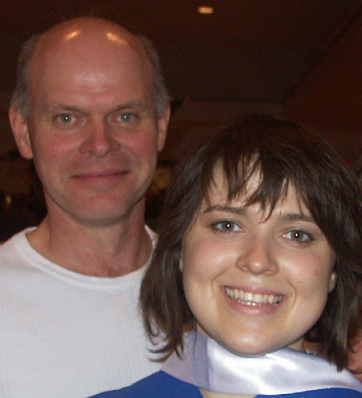
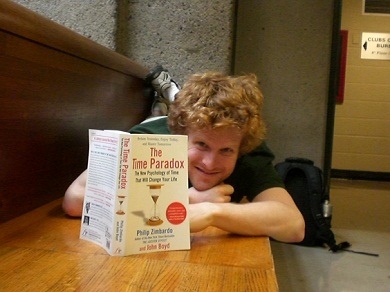
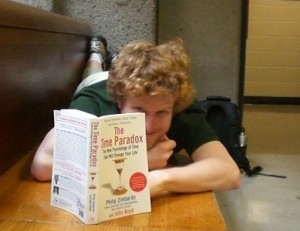 I like to read. This post is about how I have integrated more reading into my life.
I like to read. This post is about how I have integrated more reading into my life.